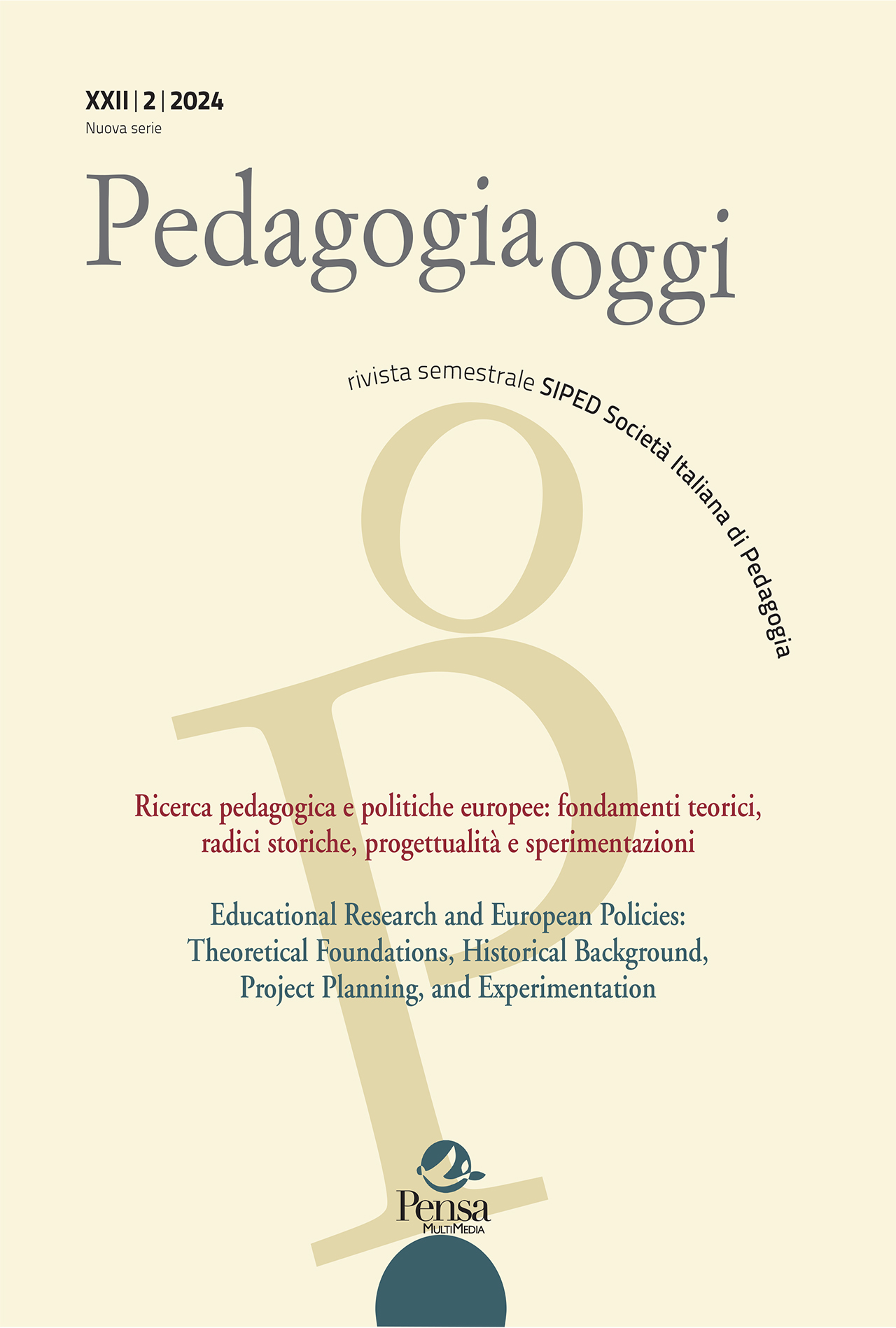L’inclusione nelle politiche europee e nelle prassi educative per l’infanzia
DOI :
https://doi.org/10.7346/PO-022024-14Mots-clés :
Inclusione, sistema integrato 0-6, infanzia, politiche educative, didassiRésumé
L’attuale scenario mondiale è attraversato da profonde sfide politiche, sociali, culturali ed economiche; tra queste un’attenzione particolare viene rivolta alla Early Childhood Education and Care (ECEC). La cura della prima infanzia è infatti riconosciuta come un prodromo insostituibile per garantire i diritti di uguaglianza e pari opportunità, di partecipazione e di espressione ad ogni cittadino.
A livello mondiale organizzazioni internazionali come l’OCSE, l’UNESCO e la stessa Unione Europea hanno istituito dipartimenti e gruppi di ricerca per individuare le variabili più idonee per la costituzione di un sistema educativo e formativo efficace ed inclusivo.
L’idea di inclusione, nata nel campo sociale, ha avuto nell’ambito educativo, soprattutto della prima infanzia, esperienze applicative che hanno contribuito a migliorare la comprensione del valore stesso dei processi inclusivi e a favorirne l’attuazione nel sistema integrato 0-6.
Nell’ambito della letteratura scientifica di settore sono molteplici i punti di forza riconosciuti all’attuazione dei principi inclusivi presenti nell’ECEC e che riguardano le varie dimensioni di sviluppo infantile, il futuro successo educativo-scolastico e i buoni risultati di un apprendimento permanente, di inclusione sociale e di occupabilità.
Il presente contributo intende illustrare come il costrutto di inclusione sia stato declinato nelle politiche educative europee in riferimento a progetti specifici della European Agency for Special Needs and Iinclusive Education e la loro traduzione nella ricerca e nella pratica didattica per il sistema integrato zero-sei anni.
Téléchargements
Publié-e
Numéro
Rubrique
Licence
(c) Tous droits réservés Nicoletta Rosati 2025

Cette œuvre est sous licence Creative Commons Attribution 4.0 International.




